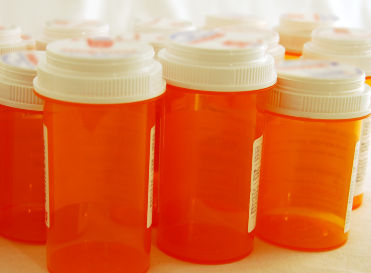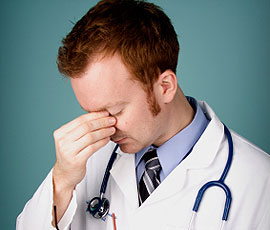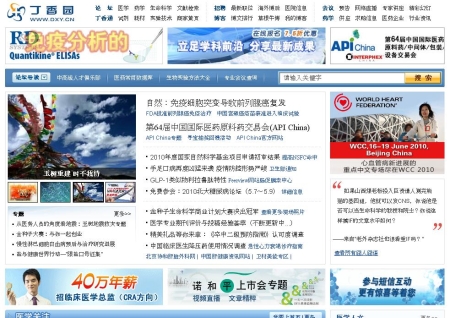June 6th, 2010 by BarbaraFicarraRN in Better Health Network, Health Tips, News, Research
No Comments »

 A recent report from the Centers for Disease Control and Prevention (CDC) states that one in five U.S. high school students have taken a prescription drug that they didn’t get from their doctor.
A recent report from the Centers for Disease Control and Prevention (CDC) states that one in five U.S. high school students have taken a prescription drug that they didn’t get from their doctor.
According to the 2009 National Youth Risk Behavior Survey (YRBS) that was released today from the CDC, the survey asked more than 16,000 high school students if they’ve ever taken a prescription drug such as Oxycontin, Percoset, Vicodin, Adderall, Ritalin and Xanax. Read more »
*This blog post was originally published at Health in 30*
June 4th, 2010 by Toni Brayer, M.D. in Better Health Network, Health Policy, Health Tips, News, Opinion, Research, True Stories
No Comments »

 From Dr. Toni Brayer at Everything Health:
From Dr. Toni Brayer at Everything Health:
We medical folks have always known that July is the worst time for a patient to be admitted to the hospital. It has nothing to do with nice summer weather or staff vacations. Although it cannot be proven, we think the answer to the mystery of July hospital errors is human — yes, it’s the new interns.
A new study published in the June issue of the Journal of General Internal Medicine looked at all U.S. death certificates from 1979 to 2006. They found that in teaching hospitals, on average deadly medication mistakes surged by 10 percent each July. The good news is they did not find a surge in other medical errors, including surgery or in non-teaching hospitals. Read more »
*This blog post was originally published at ACP Internist*
May 24th, 2010 by DrWes in Better Health Network, Health Policy, Opinion, True Stories
No Comments »

Doctors are all-familiar with marketing efforts to promote new drugs, but once the new drugs displace older drugs in the medical marketplace, who serves as advocates for the continued manufacturing of older FDA-approved drugs?
In a short answer: No one.
For those of us dealing in cardiac arrhythmia management, this presents difficult challenges for patient care if people are unable to take the newer drugs due to side effects. These patients no longer have a fall-back option to turn to for medical therapy when the older drugs have become extinct on the marketplace. Read more »
*This blog post was originally published at Dr. Wes*
May 13th, 2010 by Berci in Better Health Network, Medblogger Shout Outs, News, Opinion
No Comments »

 In the medical blogosphere, we talk a lot about medical community sites such as Sermo.com, Ozmosis.com or Doctors.net.uk and we always mention these as huge communities.
In the medical blogosphere, we talk a lot about medical community sites such as Sermo.com, Ozmosis.com or Doctors.net.uk and we always mention these as huge communities.
While Sermo has over 110,000 physician members, the Chinese dxy.cn has over 1.4 million professionals on its site. It has a blog, a conference site, a pharmacy channel, biomedical business information platform, it covers more than a 100 specialties, and offers thousands of jobs. I tried to translate the mission statement with Google Translate:
Lilac Garden Biomedical Science and Technology Network ( DXY.CN ) was established in July 23, 2000, and since its inception has been committed for the majority of medical professionals to provide a specialized life science platform. With professionalism and strong accumulation and the deepening and development of professional exchange, Lilac Garden has grown into the largest and most popular group of pharmaceutical industry professionals to network media platforms.
Now I’m looking for Chinese doctors who would help us create a Chinese section for PeRSSonalized Medicine, the easiest medical information aggregator that features only selected resources. If you know someone, please let me know.
*This blog post was originally published at ScienceRoll*
May 13th, 2010 by Steve Novella, M.D. in Better Health Network, Health Policy, Opinion, Research
14 Comments »

On SBM we have documented the many and various ways that science is abused in the pursuit of health (or making money from those who are pursuing health). One such method is to take a new, but reasonable, scientific hypothesis and run with it, long past the current state of the evidence. We see this with the many bogus stem cell therapy clinics that are popping up in parts of the world with lax regulation.
This type of medical pseudoscience is particularly challenging to deal with, because there is a scientific paper trail that seems to support many of the claims of proponents. The claims themselves may have significant plausibility, and parts of the claims may in fact be true. Efforts to educate the public about such treatments are frustrated by the mainstream media’s lazy tendency to discuss every study as if it were the definitive last word on a topic, and to site individual experts as if they represent the consensus of scientific opinion.
Recent claims made for low-dose naltrexone (LDN) fit nicely into this model –- a medical intervention with interesting research, but in a preliminary phase that does not justify clinical use. And yet proponents talk about it as if it’s a medical revolution. Read more »
*This blog post was originally published at Science-Based Medicine*
 A recent report from the Centers for Disease Control and Prevention (CDC) states that one in five U.S. high school students have taken a prescription drug that they didn’t get from their doctor.
A recent report from the Centers for Disease Control and Prevention (CDC) states that one in five U.S. high school students have taken a prescription drug that they didn’t get from their doctor.



 From Dr. Toni Brayer at
From Dr. Toni Brayer at 

 In the medical blogosphere, we talk a lot about medical community sites such as
In the medical blogosphere, we talk a lot about medical community sites such as 










